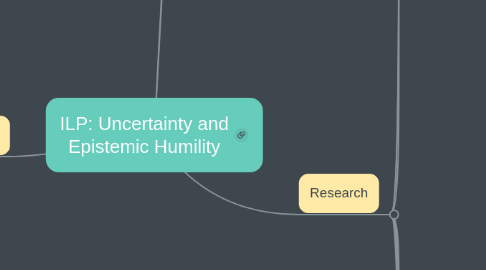
1. Apophatic, radical orthodoxy, radical theology
1.1. William Franke
1.1.1. Apophasis as the common root of radically secular and radically orthodox theologies
2. epistemic humility
3. Research
3.1. Not Even Wrong Peter Woit, 1996
3.2. Simon Oliver
3.2.1. The orthodox Christian tradition has understood God as beyond change.
3.2.1.1. Aristotelian terms
3.2.1.1.1. God is fully actual and devoid of all potency
3.2.2. Yet Aristotle defines nature as a principle of motion and rest
3.2.2.1. This appears to establish a radial disjunction between God and creation: how might God have anything to do with nature which is defined by motion?
3.2.2.1.1. what a fucking dumb question. Why does 'God beyond all change' matter? Why does our understanding of 'ontological equivalence' between our understanding of 'change' within 'nature' have anything to say about our understanding of if and how God might be 'beyond change', 'fully actual' and 'devoid of all potency'?
3.3. Dr Andrew Pinsent
3.3.1. Talks
3.3.1.1. Aquinas Institute, May 2017
3.3.1.1.1. Anthropos. Our broken mirror
3.3.1.1.2. new approach
3.3.1.2. Understanding Understanding
3.3.1.2.1. The Snow Queen
3.3.1.2.2. The puzzle of understanding
3.3.1.2.3. First thoughts and 'I / you understanding"
3.4. Penrose
3.4.1. The Emperors New MInd
3.4.1.1. 'I cannot help feeling that, with mathematics, the case for believing in some kind of etherial, eternal existence, at least for the more profound mathematical concepts, is a good deal stronger than in those other cases. There is a compelling uniqueness and universality in much mathematical ideas which seems to be of quite a different order from that which one would expect in the arts or engineering' p.97
3.4.1.2. 'What is truth? How do we form our judgements as to what is true and what is untrue about the world? Are we simply following some algorithm - no doubt favoured over other less effective possible algorithms by the powerful process of natural selection? Or might there be some other, possibly non-algorithmic, route - perhaps intuition, instinct, or insight - to divining of truth' p.99
3.4.1.2.1. 'What is mathematical truth?'
3.4.1.2.2. 'The question of mathematical truth is a very old one, dating back to the times of the early Greek philosophers and mathematicians - and, no doubt, earlier... The issues are quite fundamental, and they touch upon the very question of whether our thinking processes can indeed be entirely algorithmic in nature' p.99
3.4.2. The Road to Reality
3.5. Barrow
3.5.1. Impossibility
3.5.2. The Anthropic Cosmological Principle
3.6. Hawking
3.7. Polkinghorne
3.7.1. Quantum Physics and Theology An unexpected kinship
3.7.1.1. Act of comprehension Michael Polanyi
3.7.1.2. Comparative heuristics
3.7.1.2.1. for the scientist the proper phrasing of the truth-seeking question takes the form 'What makes you think that might be the case?' p. 23
3.7.1.2.2. 'If you examine what Thomas Young had discovered about diffraction phenomena, and what Albert Einstein had to say about the photoelectric effect, you will be forced to take seriously the seeming paradox of wave/particle duality. In an analogous way, the writers of the New Testament were force to affirm the even more perplexing fact of their encountering qualities both human and divine in their experience of Jesus Christ' p.24
3.7.1.2.3. 'Neither in physics nor in theology can one remain content simply with accepting the brute fact of the surprising character of reality' p.24
3.7.1.2.4. 'Similarities emerge in the ways in which experience impacts upon thinking and the manner in which heuristic strategies are developed to yield fuller comprehension' p. 25
3.8. Articles
3.8.1. Figuring Matter: Quantum Physics as a New Age Rhetoric, Jennifer Burwell
4. Structure
4.1. Introduction
4.1.1. justification of approach
4.2. The three types of interlocutros
4.2.1. religious traditionalist
4.2.2. religious mystic
4.2.3. secular positivist
4.3. The nature of uncertainty
4.3.1. In general
4.3.1.1. epistemic vs metaphysical / ontological
4.3.2. Particular examples
4.3.2.1. Theoretical physics
4.3.2.2. Non-linear dynamices
4.4. Critique of responses
4.4.1. religious traditionalist
4.4.2. religious mystic
4.4.3. secular positivist
